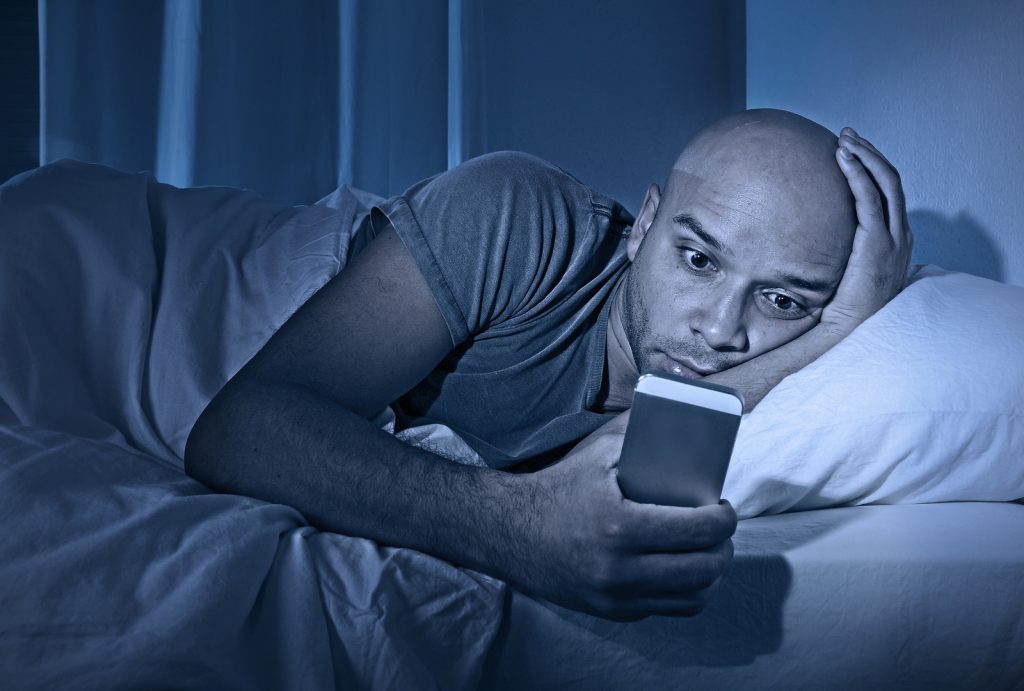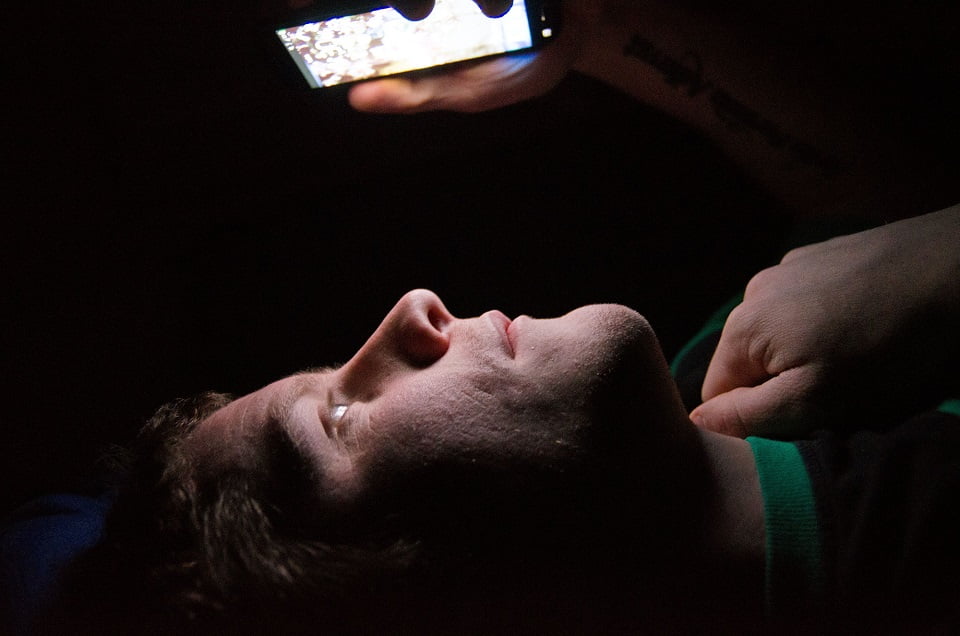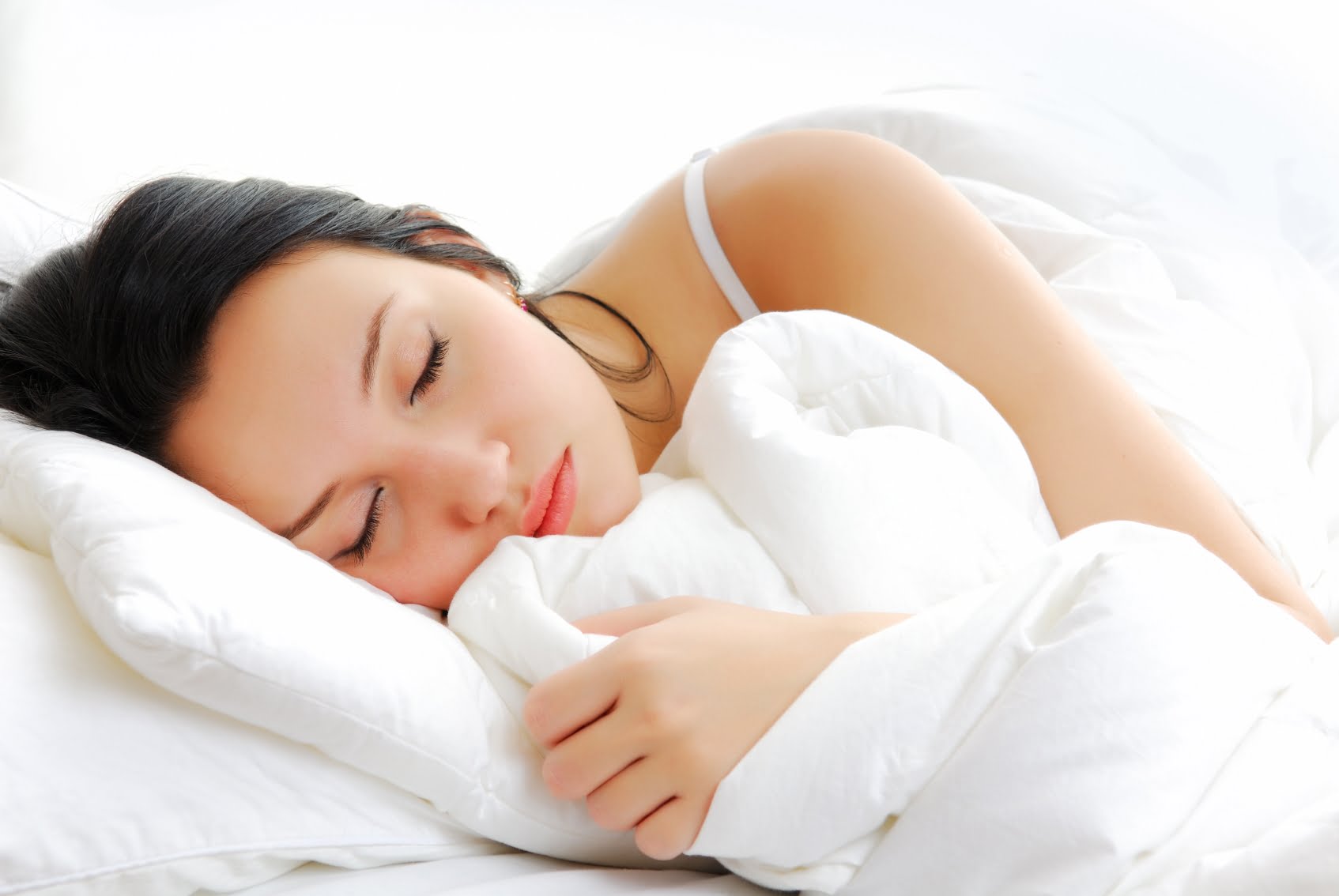The habit of falling asleep watching Netflix on your iPad or laptop, and even browsing on your smartphone right before bedtime, can negatively affect the quality of your sleep, leaving you tired and cranky in the morning.
Israeli researchers have found that blue wavelengths – which are beneficial during daylight hours because they boost attention and mood – negatively impact the duration, and even the quality of our sleep.
The blue light is harmful, the red light isn’t
Conducted by Israel’s University of Haifa and the Assuta Sleep Clinic, the study also found that watching screens that emit red light does not cause damage, and sleep after exposure to it was similar to normal sleep.
“The light emitted by most screens – computers, smartphones, and tablets – is blue light that damages the body’s cycles and our sleep,” Prof. Abraham Haim of the University of Haifa, one of the authors of the study, said in a statement. “The solution must be the use of the existing filters that prevent the emission of this light.”
SEE ALSO: Israeli Research Finds Parents’ Interrupted Sleep Is The Equivalent Of No Sleep At All
This new research is yet another proof that watching screens before going to sleep damages our sleep, after previous studies reached similar conclusions. It’s been found that exposure to blue light with wavelengths of 450-500 nanometers suppresses the production of melatonin, a hormone secreted at night that is connected with normal body cycles and sleep.
The researchers of the new study, however, sought to examine whether there is any difference in sleep patterns following exposure to blue screen light as compared to red light prior to sleep, and furthermore, to find which is more disruptive: wavelength or intensity?
SEE ALSO: Bedroom Light Can Lead To Breast Cancer, Report Says
Nineteen healthy people aged 20-29 participated in the experiment. They were not aware of the purpose of the study. In the first part of the trial, the participants wore an actigraph for one week (a device that provides an objective measurement of the time when an individual falls asleep and wakes up). They also completed a sleep diary and a questionnaire about their sleeping habits and quality of sleep.
In the second part of the trial, which took place at Assuta’s sleep laboratory, the participants were exposed to computer screens from 9 p.m. to 11 p.m. – the hours when the pineal gland (in the brain) begins to produce and excrete melatonin.
Sign up for our free weekly newsletter
SubscribeThe participants were exposed to four types of light: high-intensity blue light, low-intensity blue light, high-intensity red light, and low-intensity red light. Following exposure to light, they were connected to instruments that measure brain waves and determine the stages of sleep a person undergoes during the night, including awakenings not noticed by the participants themselves. In the morning, the participants completed various questionnaires relating to their feelings.
Substantial disruption of the body’s biological clock
On average, exposure to blue light reduced the duration of sleep by approximately 16 minutes. In addition, exposure to blue light significantly reduced the production of melatonin, whereas exposure to red light showed a very similar level of melatonin production to the normal situation.
The researchers explain that the impaired production of melatonin reflects substantial disruption of the natural mechanisms and the body’s biological clock. Thus, for example, it was found that exposure to blue light prevents the body from activating the natural mechanism that reduces body temperature.
“Naturally, when the body moves into sleep, it begins to reduce its temperature, reaching the lowest point at around 4:00 a.m. When the body returns to its normal temperature, we wake up,” Prof. Haim explains. “After exposure to red light, the body continued to behave naturally, but exposure to blue light led the body to maintain its normal temperature throughout the night – further evidence of damage to our natural biological clock.”
Disrupting the continuity of sleep
The most significant finding in terms of the disruption of sleep was that exposure to blue light drastically disrupts the continuity of sleep. Whereas after exposure to red light (at both intensities) people woke up an average of 4.5 times (unnoticed awakenings), following exposure to weak blue light 6.7 awakenings were recorded, rising to as many as 7.6 awakenings following exposure to strong blue light. Accordingly, it is hardly surprising that the participants reported in the questionnaires that they felt more tired and in a worse mood after exposure to blue light.
“Exposure to screens during the day in general, and at night in particular, is an integral part of our technologically advanced world and will only become more intense in the future,” Haim say. “However, our study shows that it is not the screens themselves that damage our biological clock, and therefore our sleep, but the short-wave blue light that they emit. Fortunately, various applications are available that filter the problematic blue light on the spectrum and replace it with weak red light, thereby reducing the damage to the suppression of melatonin.”
The new study, recently published in the scientific journal Chronobiology International, was undertaken by researchers Prof. Abraham Haim of the University of Haifa; Amit Shai Green of the Sleep and Fatigue Center at Assuta Medical Center; Dr. Merav Cohen-Zion of the Academic College of Tel Aviv-Yafo; and Prof. Yaron Dagan of Tel Hai Academic College.
Photos: JBSA, Penn State, The Brunette Diaries
Related posts

Editors’ & Readers’ Choice: 10 Favorite NoCamels Articles

Forward Facing: What Does The Future Hold For Israeli High-Tech?

Impact Innovation: Israeli Startups That Could Shape Our Future






Facebook comments